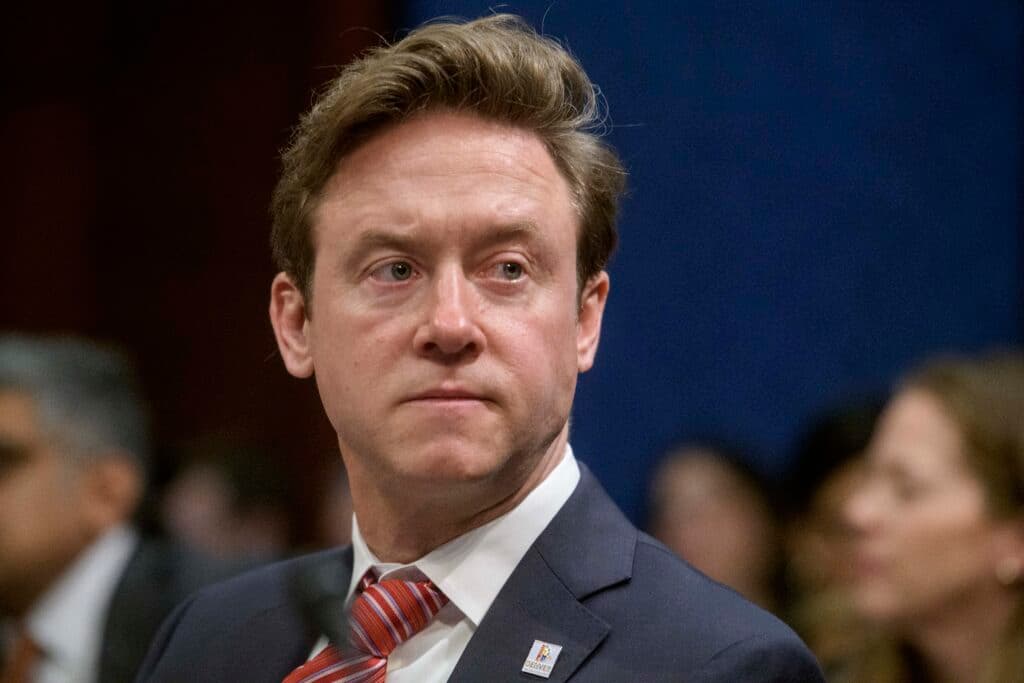
Is Colorado a sanctuary state? Is Denver a sanctuary city?
In letters going back and forth, the Department of Justice is saying yes and the state and the city are saying no.
On August 13, Attorney General Pam Bondi wrote to Gov. Jared Polis and Denver Mayor Mike Johnston, as well as about 30 other states and local governments, demanding they stop their so-called sanctuary policies.
“You are hereby notified that your jurisdiction has been identified as one that engages in sanctuary policies and practices that thwart federal immigration enforcement to the detriment of the interests of the United States,” Bondi wrote.
The letter went on to warn recipients that she had instructed the DOJ and U.S. Attorney’s Offices to investigate and prosecute policies in violation of U.S. statutes, including the rules around communication between government agencies and immigration enforcement and a prohibition on “harboring” undocumented immigrants.
“Please submit a response to this letter that confirms your commitment to complying with federal law and identifies the immediate initiatives you are taking to eliminate laws, policies and practices that impede federal immigration enforcement,” she concluded.
“Colorado is not a sanctuary state,” responded Gov. Polis on August 19. “Colorado fully cooperates with federal authorities in identifying, apprehending, and prosecuting criminals – regardless of immigration status. Recently, I signed a law that specifically acknowledges the ability to share information with the federal government to assist in criminal investigations or proceedings.”
As for Denver, the acting city attorney said it has no intention to change its practices. And Mayor Mike Johnston said the city complies with federal law.
“We don't ask someone's status, because it's not relevant, if you were doing 65 (mph) in a 45,” Johnston said in a video posted to social media. “When they allege that we harbor folks from the federal government that have committed crimes, (it is) completely false. If you've committed a violent crime in Denver, we're pursuing you, we're arresting you, we're charging you. We're working with the federal government to do that, if that's what's required.”
Johnston added he’s worried that people won’t cooperate with law enforcement, whether it be reporting a crime or testifying, if their immigration status is an issue.
While Bondi’s letter referenced President Trump’s threat to withhold federal funding from so-called sanctuary state jurisdictions, a U.S. District Court judge on Friday blocked Trump from doing so.
CPR News reached out to the DOJ for specific state or local laws it wants to see changed. Instead, the department referred to a press release that laid out characteristics of a sanctuary jurisdiction, including “laws, ordinances, regulations, politics or other formalized practices that obstruct or limit local law enforcement cooperation” with ICE, restrictions on information sharing, refusing to honor civil detainers unless there is a warrant and prohibiting local funds and resources from being used to support federal immigration enforcement efforts.
Colorado limits when the state, local governments and law enforcement can communicate with ICE and bars county jails from holding people beyond their time in order to let ICE come pick them up.
What is a sanctuary jurisdiction?
What defines a sanctuary jurisdiction is not a new question, according to CU Boulder Law Professor Violeta Chapin, who specializes in criminal law and immigration law.
She noted that sanctuary policies stemmed from the 1980s when churches provided sanctuary to immigrants from Central America. “We had churches taking whole families into sanctuary, right, in their churches and providing them with food and bedding and a place to stay. That has evolved over the years to be a wide range of things.”
But while the Trump administration has focused its definition of ‘sanctuary policies’ on the ways in which local governments limit cooperation with immigration authorities, places like Colorado argue they’re just making legitimate decisions to focus their resources on local concerns.
“What Colorado is doing and what several other states are doing and what every state has the right to do under our Constitution is to prioritize state and local objectives and not be forced into doing the federal government's work,” said Chapin.
She noted that Colorado does work with and communicate with federal immigration enforcement, and that immigration enforcement does happen in Colorado and Denver. Both Polis and Johnston stressed cooperation when it comes to apprehending undocumented immigrants who commit crimes, but the jurisdictions do not detain people based on their immigration status, or share people’s status when they are pulled over for a minor offense, like a broken taillight.
Polis said Colorado “will not allow the federal government to commandeer our public safety resources,” which are protected by the 10th Amendment.
Polis said he’s frustrated by the Trump administration’s “mislabeling of Colorado” and asked that the sanctuary state designation be revisited.
However, it’s not just the Trump administration. Several of Colorado’s own Republican Representatives also label the state and Denver “sanctuary” jurisdictions, including during a March House committee hearing where Johnston and three other Democratic mayors defended their policies.

Bondi’s letter pointed to other statutes the department argues so-called sanctuary jurisdictions are violating, including conspiracy to commit offense or to defraud United States, concealing person from arrest, obstruction of proceedings before departments, agencies, and committees and communication between State and local government agencies and Immigration and Naturalization Service
Chapin noted that the first Trump administration sued California over its so-called sanctuary policies in 2018 and lost. The current Trump administration is trying again, this time taking the city of Los Angeles to court in late June. That case is ongoing.
The DOJ sanctuary jurisdiction list released in early August comes after the Department of Homeland Security put out a list in late May that included several Republican-led jurisdictions in Colorado. That list was taken down a couple of days later.
| This story is part of a collection tracking the impacts of President Donald Trump’s second administration on the lives of everyday Coloradans. Since taking office, Trump has overhauled nearly every aspect of the federal government; journalists from CPR News, KRCC and Denverite are staying on top of what that means for you. Read more here. |








